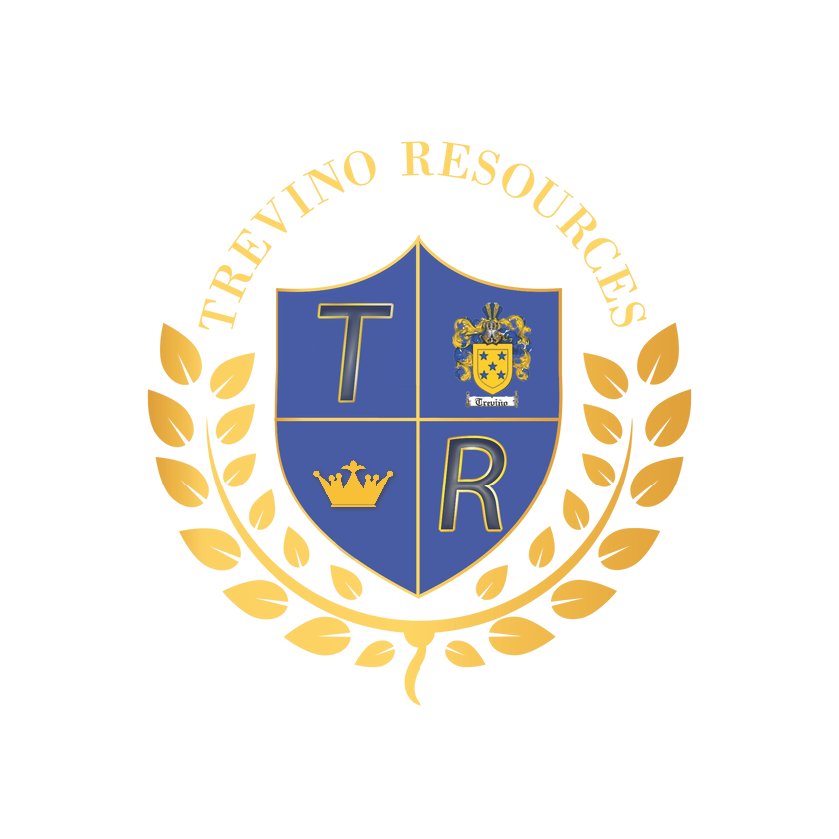The American oil industry’s complexities with industry experts like RJ Burr, CEO of Panex. Discuss historical significance, current challenges, and future prospects, emphasizing the enduring importance of American oil despite alternative energy sources. Burr shares insights into Panex’s operations, exploration strategies, and industry partnerships. The podcast highlights investment opportunities in oil drilling programs and stresses transparency and integrity in the industry.
Highlights of the podcast
03:36 – RJ Berger’s background
06:50 – The service side of the oil industry
08:33 – Who is the true American oil and gas industry
10:46 – The rarest occurrence
12:40 – One of three things happens
14:15 – The heart of oil and gas prices
15:06 – The other side of that dirty little secret
18:01 – The day oil went negative
21:01 – American oil built the modern world
25:36 – The American oil industry
27:02 – Small oil and gas companies
29:59 – Partnerships
32:03 – The main goal
35:47 – Ground foundation, Oil and gas 101
36:34 – When it comes to our programs
Please reach out to RJ Burr on LinkedIn

Check out StatusJet HERE
Video Transcription edited for grammar. We disavow any errors unless they make us look better or smarter.
Rey Treviño [00:00:00] What is American oil? We’re going to talk about that and much more on this episode of The Crude Truth.
Narrator [00:00:06] In 1901 at Spindletop Hill near Beaumont. The future of Texas changed dramatically as, like a fountain of fortune, thousands of barrels of oil burst from the earth towards the sky. Soon, Detroit would be cranking out Model TS by the millions and America was on the move. Thanks to the black gold being produced in Texas, now, more than a century later, the vehicles are different, but nothing else has truly changed. Sure, there may be many other alternative energy sources like wind and solar and electric. But let’s be honest. America depends on oil and entrepreneurs. And if the USA is truly going to be independent, it has to know the crude truth.
Rey Treviño [00:00:50] Nape is a proud sponsor of the Crude Truth. Be sure to register for the Nape Expo 2024 for February 7th through the ninth at the George R Brown Convention Center in Houston, Texas. Hurry and register today. Nape where deals happen.
Narrator [00:01:06] This episode is brought to you by LFS chemistry. Committed to being good stewards of the environment and providing the tools so you can be too. Nape Expo where deals happen. Air compressor solutions when everything is on the line, air Compressor Solutions is the dependable choice to keep commercial business powered up. Sandstone Group, Exec Crue. Elevate your network. Elevate your knowledge. Oil and Gas workers association. Pecos country operating. Fueling our future.
Rey Treviño [00:01:39] Well good morning. Good afternoon. Good evening. Whatever the time of day it is. Thank you, as always, for tuning in, watching or listening to another episode of The Crude Truth. I am just so excited today. What a day it is. Today is a day here. We’re coming into the New year. We’ve got new things that we’re rocking and rolling. Oil is still here today, and it was here yesterday, and it’s going to be here tomorrow. And more importantly, American Oil is here. And if I do say so, 2024 is going to be the year that American oil helps save the world when it comes to our oil and gas issues. Today, my guest is somebody that is just world renowned, somebody that has been in the oil and gas industry, for over 30 years, closer to 40 years. Somebody that knows the ins and outs. My guest today is the CEO of Panex heli hailing from Bowling Green, Kentucky. RJ Burr. RJ, how are you today?
RJ Burr [00:02:39] RT I’m doing great. How are you doing today?
Rey Treviño [00:02:41] Oh my gosh, I can’t complain. I’m trying to get settled in here. We just got some new offices, so I’m trying to get settled in the best I can and
RJ Burr [00:02:50] Yeah, do. What you guys do.
Rey Treviño [00:02:52] So I can’t complain. But thank you so much. You know, when, you, when I had the opportunity that, to to meet you and do this episode, I was just too excited about it. You are a guy that has been in the oil and gas industry, like I said, for almost 30 years, and our wolf QB for over 30 years, little closer to 40, and you were just blazing a trail. You’ve, you’ve been part of millions of dollars worth of projects you’ve produced, you know, millions of barrels of oil, and you’re in Kentucky, the heart of the country. Centerville, Tennessee and Kentucky, right. You’re part of the heart of that, Nashville, country. See, so for all our listeners and viewers out there, please tell us a little about yourself.
RJ Burr [00:03:35] Well, my name is RJ Burr. I’m from Bowling Green, Kentucky, now. Nashville. They get the country music, but we get to be home with the Corvette. So some people can be the peach capital of the world. But, every every Corvette riding in America was put together right here in Bowling Green. And so that’s, it’s kind of something to hang your hat on. Yeah. Or you could say fruit of the loom also, where the headquarter may have the headquarters for the loom, but corvette seems a little sexier. Now, it’s kind of when you look at being in Kentucky, we were talking earlier about, my family came to Kentucky. And roughly it was 1989 1990 that there was a well hit out in Clinton County, Kentucky, the Ferguson well and from 4000ft deep, as well as producing 4000 barrels of oil a day. And, heck, we came out here looking forward and, being oil and gas, we got a rude awakening when we got to Kentucky. Our first five years, we didn’t have all the change in your car, and, well, well, eventually, you know, camera. Now, the problem we had is we love the town of Bowling Green. It’s just it’s a it’s it’s. I couldn’t, I remember my first day here. So my formative years were in California, and so I was sixth grade and sophomore year. And in California. You know, I’m not speaking ill of California. However, when you drive down the road and somebody wave to you, that was walking, your first reaction was to grab your wallet, you know, what do you want from me? And so me and my dad pulled in my mom and sisters where we’re in Louisiana with my grandfather and me and my dad, pull in the big U-Haul, we’re on load, and we’re doing all this stuff, and I get in the car as a dad and go figure out this town, just turned 16 a month or so before. And, so I kind of got I kind of got grandfathered. All the kids in Kentucky, when they turned 16, they had to wait like six months or 12 months before they could drive. Oh, and so in California, I remember I got my license the day I turned 16 and my mom turned me loose on I-10 driving home and and yeah, that and hindsight being 2020, I can’t say I do the same with my kids. Yeah. But, so we get here and I pull out and literally no further than a block and a half from the house. I see this mom walker get in the stroller, and she waved to me. In my first reaction, I grabbed my watch like, hang on, what you want. And as I’m going by kind of way back, we’ll turn the corner, go another block, see another one more push to get on her stroller. And she waved it. And that was the moment I realized, hey, you dummy, they don’t want anything from you. They’re just saying hi. Yeah. And it was. It was home. And so at that point, we determined we’d never pick up stakes again and go anywhere else. We’d stay right here. However, if you’re going to hunt for elephants, you go to Africa. And, if you got to hunt for oil and gas, you go to the Gulf Coast. You go to where? Where we know what we’re doing. And so we stopped drilling, and Kentucky opened up in, the Gulf Coast and haven’t look back.
Rey Treviño [00:06:24] Yeah. And what parts of the Gulf Coast are y’all, producing from right now?
RJ Burr [00:06:29] Oh, we’ve been we’ve been all over. When it comes to my family story, when we got involved in oil, when I got involved, first time my dad brought me on a rig, I was seven. And so we’ve been around it our whole life now. I’m third generation. My mom’s family. My mom’s dad and her brothers were in the service side of the oil industry. My dad, my dad, mom got married very young, and my dad got into the insurance business. I was 20, 21 years old, and he sold insurance for roughly six, seven years. Great salesman. I mean, if God, I believe God gives everybody at least one talent. It’s your job to find it. And, some people get more. Some people get a handful. Well, my dad was given the ability to sell. And so all of a sudden, he starts doing the math on and he’s like, whoa, it’s going to take me 30 years to make the kind of money that I want to make selling insurance. Because, you know, once you build it up, it’s awesome. However, to build it up takes you a while to get it going. Well, at that time, he’s 27 years old and my Uncle Gene’s living in Dallas, and he calls my dad and says, Bob, I think I got a game. And I was like, all right, what is it? He said, Come to Dallas. Let me show you what we’re doing. Yeah. And they were funding and all due. And my dad sat there. Oh, this is a Wild West, 1973. And so my my dad sat there and listened to him for about half the morning, go and look at Gene and say, hey, give me some of those late. And he grabbed it, made a sale his first day on the phone, called my mom, said put the house for sale and that was his introduction to oil and gas.
Rey Treviño [00:08:11] Oh, wow.
RJ Burr [00:08:12] And I was born two years later. Okay. So that now every oil and gas company, there’s there’s nothing academic where you can find there’s this is just kind of a old a observation and kind of how we classify things in oil because every oil and gas company. Well, the first thing you need, we need to state is who is the true American oil and gas industry. Yeah, that that’s that’s the first thing that people really need to understand, especially if you’re looking at putting your money into oil and gas. You need to understand the playing field you’re on, because oil and gas tax benefits are second to none. You know how many other investments out there can you put a dollar out? And Uncle Sam look at you and say, I’ll pay 30, $0.35 of that dollar for you? Yep. You know, if we don’t produce one dime for our partners in year one, they still made 30, 35% of the money just due to tax benefits. Yep. And so the the motivation to invest in oil is tremendous. However, you’ve got to know what you’re getting involved in. When you look at American oil it’s not your majors. In fact, your majors, just because they’re based here in America, they’re international companies. They’re they’re beholden to their stock. I don’t I don’t begrudge them anything. I mean, these guys are doing what they have to do. However, 83% of the oil, 90% of the gas and more than 90% of the wells drilled domestically are drilled by roughly 9000 independent companies that average 12 employees or less. Yeah, that’s your oil industry. Now, the reason I say that most of these companies, in fact, I’d be willing to bet all of them they start out the same way, doing what we call chasing oil. So you have a guy, he wants to be an oil man. He finds a prospect, raise some money, goes out and drills the well for 99.9% of the people. That’s it. They Mr.. Well, can’t raise any more money out of business. Goes in the front door. Well, the very fortunate few that hit that well, they found job security. Their job is secure as long as they have wells to drill around that original well and develop the field well, all while they’re developing it, they’re looking for another lily pad where they can jump to it. Yeah. A successful oil man looks up. He’s 60, 70, 80 years old. He’s found five, ten, maybe 15 of these lily pads. His partners have made a tremendous amount of money. He’s made a tremendous amount of money. However, he spent his entire career chasing oil. And what we mean by that doesn’t mean that he’s not good at what he does. It means that he had to produce everything he found to keep the engine going. Yeah. Now, the rarest occurrence in oil is when you jump from that chasing oil category and to what we call the producing oil category. Now there’s really only two differences. The first, when you’re in the producing oil category, every time you drill, you know the oil is there doesn’t mean you’re going to hit it. This is still oil and gas. Anything can happen when I drop, it touches the ground. However, you know you’re on top of oil. But more importantly, the second difference is when you’re in the producing oil stage, you have enough reserves to utilize those reserves to acquire more reserves. Now you’re in the oil business, you know. Prime example we have a field right now where we’re really not interested in anything deeper than 9000ft.
Rey Treviño [00:11:31] Yeah,.
RJ Burr [00:11:32] We can do it. I I’m drilled 20,000, but well, I’m not sweating that. However, it doesn’t we’re not interested. They’re more difficult. There’s really. I’m not saying we won’t, but we just. We’re not interested in it. Well, just because we’re not interested in what’s below 10,000, eight, 9000, 10,000ft doesn’t mean that the oil is not there. Yeah, we have potentially 30 million barrels sitting below us from 10 to 15,000ft. Well, we have partners out there that love deep wells. We have industry partners. They don’t like anything shallower and 10,000ft. We come to them and say, look, here’s what we have. Let us see what you have. You come drillers, we’ll keep a base. We’ll come drill years. You keep a base. Now, we’ve utilized those reserves to acquire more reserves. Yeah. Now, for a company, for somebody to do that once is pretty impressive. My family’s now done it twice.
Rey Treviño [00:12:27] Yeah,.
RJ Burr [00:12:28] The the first time we did it, we really we jokingly we call it our first life. And all that ended about ten years ago when marathon all about my family’s company. Because once you get to that producing world stage, typically one of three things happens. One. You’re making so much money. Your partner is making so much money. You just keep it as is and keep rolling. Two. You take it public. Three. A major comes in and buys. Well a major. They came in and ballers and that was, oh what, ten, 11 years ago, maybe 12 years ago. And, we entered into early retirement. I was in my mid 30s. Thought I was going to play on the PGA tour. It took me about six months to realize that that wasn’t going to happen. Okay. But, but seven years ago, this past July. I was sitting out there and I remember I was on 18 and I snap, put one in the water. I didn’t even go. Didn’t go to the war. I just threw the driver in my bag, got in the car, drove to my truck, drove to my dad’s house, and my brother happened to be there. Yeah, as a guys, I’m going batshit crazy. It’s time to get back to work. And. Thank God they were thinking the same thing. And that was one. Panics was what that was when we started. And that that’s basically for the last seven years. Now there’s a lot of stuff that’s happened in the last seven years, and we’ve been very fortunate. But. I’ll just put it to you this way. We saw the crash coming. Now, if anybody ever tells you they saw Corona coming, they’re live their lives. We didn’t. You know, nobody saw that coming. What we saw was Russia and Saudi Arabia. You know, whether you like Trump or not, that’s irrelevant to the discussion. What he did was he basically took OPEC’s power and took it from. Yeah. And the oil OPEC has been the heart of oil and gas prices for 67 years. And all of a sudden when our shale industry was producing like they were producing, OPEC wasn’t as relevant. Well, that’s what we saw. We saw Russia in Saudi Arabia OPEC, OPEC plus increasing production pushing that price down. And essentially an economic war against the US challenge.
Rey Treviño [00:14:36] Exactly. Yes.
RJ Burr [00:14:38] Now what what really got us where we knew there was something was going to happen is when, you know the industry now shale companies are highly leveraged. Most of them need at least $50 a barrel to pay their bills. Anything above 50 is where they make their profit. And so what we saw is we saw a rush in Saudi Arabia pushing it to 40, $45 a barrel and putting a lot of those companies in trouble. And so we knew there would be some opportunities to pick up reserves. Now, the other side of that dirty little secret is Russia and Saudi Arabia near $50 a barrel also. But we were betting that they were willing that they could last longer than the shale industry. Yeah. And so that was really what we started, started looking for. We started anticipating average. We thought it’d take 18 to 24 months to happen. And when you look at crashes, when you look at all the economic chaos over our country’s history, in every case there’s a group of people that come out of the other side looking like geniuses. And when you string their stories together, there’s really only two common factors they share. One, when their crash happened they had cash in hand. Yeah two. When the opportunity presented itself they had as my dad would say, the intestinal fortitude to push their chips in the middle of the table. Yeah. And so that that’s really what we were building all this on. We got our cash and we were ready to go. And then all of a sudden, April 20th, 2020 happens. Yeah. And Corona, while it wasn’t the trigger, we envision the result was the exact same. The only difference? It took what we thought would take 18 to 24 months to play out and crunched it down into 30 days. Yep. And what happened? The initial wave. And that’s where knowing the American oil industry helps explain a lot of this when that happened. Don’t get me wrong, it hurt the majors. It hurt your bigger companies. But they are those bigger companies. It didn’t hurt them where it shut them down. Yeah. When you look at the independent producers in America, those 9000 companies that average 12 employees or less, that’s who it got it. And your first wave immediately when prices dropped your first wave were the companies that were either brand new, not financially solvent or on shaky ground to begin with. Immediately boom, they were wiped out out of business because.
Rey Treviño [00:16:58] They were gone.
RJ Burr [00:16:59] Well, then a couple of months later, remember when we sent everybody home for Covid? Yep. You’re larger companies that could pay their employees enough to get them to come back to the field more than the government. They made it. Yep. The companies that couldn’t get their employees back out there, they did. And so that was your next fight. And so what we saw is we saw a clearing of the playing field unlike we’ve ever seen. And there were acquisition opportunities that really. I’ve been doing this my whole life. I’ve never seen the kind of acquisition opportunities you see right now.
Rey Treviño [00:17:36] Oh, they’re they’re they’re ridiculous RJ. I know for us, you know, one thing, you know, like, I’ll share. You know, I’m second generation. My dad’s been in it since the mid 80s himself. And it was always fun to, you know, he’s always said, I’ve seen this before. We got this, I seen this. And so I and my listeners have heard me say this before that, you know, on April 20th, you know, I called my dad up and go, do you ever seen this? He goes, no. And of course, that’s the day oil went negative, you know. Yeah. And there’s like, no never seen this one.
RJ Burr [00:18:05] So can you describe it. So can you describe exactly where you were at the moment you saw that. -40.
Rey Treviño [00:18:10] Oh I was I was actually at home right before lunch, walking in my bathroom, from my bedroom. And I saw the negative price on the phone there about 11, 1130. And it was at like -13 or 15 at the time. And, I reached out to my dad and a buddy of my going, what is this about? And, and, and what a lot of people don’t know is like, granted, you know, at that time, oil was at about $25 a barrel. Well, you know, the day before and and give or take. But, you know, we were still getting paid from the last 30 and 60 days. And we continued that for the next two, three or 2 to 3 months there. And, but like you mentioned, you know, we were able to pick up, you know, half a dozen leases during that time frame because we had the cash on hand and people were like, we’re done. We’re out. And it’s like, you know, all right. It’s like, well, we’ve got it. Let’s go do it. And we need to buy that production. And and as you’re seeing all the mergers and acquisitions, that’s like, let’s keep that inventory. So we could just add to the inventory that we have.
RJ Burr [00:19:11] Yeah. Well because the key to all of this oil is not going anywhere. Yeah. Doesn’t matter what they say doesn’t matter. Look at the actions. Look at the ram. Just I mean, if I’m not a rocket scientist, but if I can sit down and research and look at the numbers and do one plus one will always equal two, it’ll never equal one and a half. Never equal three. It’ll always equal two. And so just sit down and put a pencil to it. And it doesn’t make sense. You know you look at the to make the conversions that they want to make. You’d have to rate Mother Earth like we’ve never raped a. Before we have to pillage this place. And so you look at it, you say, hang on. Are your beliefs genuine? Because if you truly wanted to help the environment. You’d go nuclear. Natural gas? Yep. We already have most of the infrastructure for natural gas. Every car could be converted to run on natural gas. You could pipe it to everybody’s home in their garage. They could fill it up at night. You wouldn’t have to go to convenient stores anymore. Well, why wouldn’t you do that? It burns cleaner. Oh, you want a clean environment? Let’s go. Nuclear. You mean to tell me we can run our most advanced submarines on little suitcase cars? So hmhm yet we can’t? No. And so it’s just it’s disingenuous. And so when you look at that, and then you look at the role that oil is played, the modern world began. When oil was first produced in America.
Rey Treviño [00:20:44] Yep.
RJ Burr [00:20:45] I mean, the American oil built the world as we know it. Yeah. Now, as your majors dispersed and started going overseas looking for larger reserves. That was when the emphasis was taken away from American oil. But up until that point, I mean, American oil built the modern world. And if you if you know what you’re looking for, that’s the that’s the key. It’s not just randomly going out and grabbing properties. I mean, if you go grab a piece of property that’s been drilled on and stepped on 27 different times, and they’ve got all the well, you just basically bought a useless tiger. Yeah. You know, so you have to know it like we love salt those. We love salt those. The reason being there’s two reasons. One, most companies don’t have the intestinal fortitude to drill on top of this difficult drilling. And you have to have an expertise to do it. And so that eliminates a lot of the competition. Well, secondly, your salt domes were your original oil fields back in the in the pioneer days of oil. Those were the first structures your geologists were able to identify. Yeah. Well, you’re old. Oil companies are about like spoiled kids and a spoiled kid. What’s his favorite toy? His next one. Yeah. And so they would go out, they drill well, they’d hit it that they’d cut back flips. They drill a handful of wells around it. They didn’t have to say ten, 15 wells around this well over a five year period. Then all of a sudden they did a well three miles away. Well, they thought they produced all this. So they just pick up and go. Now, don’t get me wrong, a lot of the salt domes have been completely developed. There’s nothing. No, there’s no reason to go in there. Yeah. However, there’s a lot of them that weren’t properly developed. Oh, yeah, that. I mean, you look at, we’re on the Choctaw right now. Okay. You dropped on in Baton Rouge.
Rey Treviño [00:22:32] Yes.
RJ Burr [00:22:33] And when we originally purchased it, we I think we made 23 acquisitions over the last 3 to 3 years. And this one right here was the biggest one, because when we originally purchased it and sat down and looked through all the geology, we said, okay, there’s probably ten, 15 million barrels still recoverable here. Well, then we went out and we were the first group to collect the roughly 40,000 different data sets that were created on this field over the last 100 years, originally discovered in 1926. Yeah. And so we went and got every bit of, well, data on it, digitized it and put it in one spot. And once we looked at that, we said, Holy, there might be 30, 40 million barrels, maybe 50 million barrels sitting out here to develop. Well, then we got the 3D seismic, the Strategic Petroleum Reserve. That’s our solve them. Yep. They shot the 3D seismic over to see where the salt ended so they could dig their caverns. We just kind of got in touch with and said, hey, can we see it? We need to know where the salt. And so we don’t drill it. Yeah. Well, once we took that data and laid it on top. Well, when you’re developing a salt, though, the low hanging fruit is the overhang. Basically salt dome comes up, creates a rostro.
Rey Treviño [00:23:42] Goes like there
RJ Burr [00:23:43] Under the mushroom cap. Yeah. Well, that’s the low hanging fruit. That’s the first area you develop. We assumed the entire overhang was developed on this and we purchased. Yeah. When we laid that 3D seismic over top of it, there was close to 80% of the overhang that wasn’t even touched.
Rey Treviño [00:23:57] Wow.
RJ Burr [00:23:59] There could be more than 100 million barrels in this field. And so that that’s what we’ve been doing. We’ve been developing we we all we’ve drilled 11 wells in the last two years. Okay. We placed eight of those wells online. And the three wells we didn’t place online were mechanical failures, but we saw all them. So we’ll go back and re drill the well. Yeah. And so it’s just. I told my my brother I would because my dad, my dad retired. Oh, it was a year ago right now. Yeah. And, my brother and I bought him out, and we’re sitting here and we’re kind of cousins discussing what we’re going to do moving forward. You know what? What are our strategies? And I said, well, that’s about right now. We know that we have more than 200 wells to drill around this. Although, yeah, we know it’s going to cost us 2 or 300 million to do the whole thing. If we’re right, there’ll be seven, $8 billion worth of oil here.
Rey Treviño [00:24:52] Yeah, I was about to say. Yeah.
RJ Burr [00:24:54] I said, so we’re going to do that anyway. There’s plenty of wells where there’s going to be wells for our kids to drill when we’re long gone. There’s plenty of oil for our kids to utilize when we’re long gone, and so we don’t have to do a thing. We can stay on the same path and just keep cookie cutting this as. But we’re already going to do that. Why don’t we shoot for the stars, you know? Well, let’s see if we can build an exile. There hasn’t been a major American oil company built on American oil in close to 40 years. It’s happened one time when two companies merged, but they didn’t say it wasn’t independent. They found it themselves. And so you sit down and you look at the American oil industry, somebody is going to consolidate this oil. Yeah, it’s too big a piece of pie for what we’re doing moving forward. So somebody is going to come in and do it. Well. If somebody is going to do it doesn’t make sense for it to be people who actually care what happens to it.
Rey Treviño [00:25:53] You know, that’s funny. You mentioned consolidating, because that’s something me and my brother talked about, because, you know, there’s a lot of similarities here, and I’m glad that, that we can talk here because, like, my brother’s out in the field today. My dad’s in his office right now running the books. How old was your dad when he retired real quick.
RJ Burr [00:26:12] 77.
Rey Treviño [00:26:13] 70. Okay. My dad’s 71, and he’s still, you know, people think, you know, and.
RJ Burr [00:26:18] Oh, no, he he still comes and he still comes in to three times a week. Yeah. Oh, yeah.
Rey Treviño [00:26:21] No, no, no, he’s always going to have an office and, you know, and if he can go, you know, I joke with I said, give me the 75 and and then and then we’ll see what you can do. You know, if he wants to retire, then. But no, he, he gets the final say on it, but. But no. So me and my brother were driving from leases to leases up here in North Texas a couple of weeks ago. And we started out, by buying some of this old existing production, with room for new drills, rework old wells and then drill some new wells. And it’s really worked out for us and our family. But we were sitting there and and I hope I’m not giving away a great trade secret or an idea in my head. But it’s like you got all these small oil and gas companies, like you said, there’s 9000 and you’ve got two oil and gas companies. I had a professor at, TCU asked me to talk about all of them that are making anywhere between 100 to 500 barrels of oil a day, and they’ve got maybe five people on the payroll. That’s a hell of a paycheck, you know, and and they probably do a lot of the operating work themselves. And so that just makes their paychecks even bigger. But then what about all the other smaller stuff that may be producing ten barrels a day on these leases? Right. These smaller leases. And it’s like, get a company out there like the real estate did about ten years ago, where all of a sudden they’re just going to start buying up everything. And like their goal is 10% a year. It’s like, let’s just get all this stuff consolidated and let’s just make sure we’re making 10% a year. And, so that was that’s where my idea went with consolidation. So I like your idea. It’s a lot, a lot bigger than mine. And, but we have not had any real American large majors. And again, yes, we could talk about Exxon and all that being American majors, but being built with American oil every day. I mean, the best thing Exxon’s done is, as we all know, was the merger with pioneer. As far as being American oil, I mean, that’s I think that’s now their largest American asset, if I’m correct.
RJ Burr [00:28:27] I believe so, I believe so, well, but it’s just something that your majors that are majors now, they made their status. Yes. When it was the wild west of oil. Yeah. Now, nowadays when you act as short as 3 or 4 years ago, the only way to become a major is to have the reserves. You have to have the bookable reserves. Well, the only way to find those reserves are to one. Find it yourself. Yeah, well, all the federal tops are found. Yeah. The odds are you finding a the build your company overnight field are slim to none. They might do it down the road. Somebody might find some new area. But right now they’re not there. So that that’s very difficult to do doing a small field at a time. Or you buy it from somebody who’s already found it. Yep. Up until three years ago they knew what they had. And so they’re going to charge you an arm and a leg for it. And so that route was difficult also. So the playing field was such that it was next to impossible for somebody to really come up through the ranks and build to that status, because you couldn’t acquire the reserves fast enough right now you can. Yeah. And that’s really what changed. And so like, well, prime example when the crash happened. We had two partnerships that had been in production for one of them for three months. The other one for two months. And that in those three month and two month period, those two partnerships paid the partners back almost 70% of their money. I mean, these these wells were just they were their rocket, and they were doing exactly like we had predicted. I mean, we were tickled pink. And then all of a sudden, April 20th happened, you know, and it got it. I mean, it gutted those partnerships because in those wells, the initial flow rate, which was about the first 12 months of production, was where 90% of their money would come from. Yep. And so all of a sudden, when those prices crashed right in the middle of it, it really hurt the partnerships. And so at that point in time, if anybody on the because heck, I knew what was about to happen before that, before that price crash, we’re about to raise $50 million. Yeah. You know, when you when you have partnerships that are rocking like that, your partners keep I mean, it’s just it’s infectious. It it happens. Yeah. And we were about to do it I I’ve done it before. Well then all of a sudden it crashed. And so if anybody had the right to curl up in the fetal position and suffer some, at that point it was us. However, once that did happen, we kind of had this, little group powwow and we said, hey, guys, this is what we were expecting to happen anyway. Yeah. And so when everybody else pulled their sales and dried out the storm, we opened our eyes wide open and started looking to make acquisitions. That and. Yeah. And now, I mean, we got guys coming to our sites daily trying to sell us their stuff. Yeah. You know, now we’re we’re very selective because we don’t have to do it. Yeah. I mean, like I told you, remember when the silver crunch happened here two years ago?
Rey Treviño [00:31:32] Oh, yeah. Yeah.
RJ Burr [00:31:34] You got it. Well, my partners and I’m willing to bet most partners they live out of 3000 money. I call three as the first pile of money that you’re saving or that. Excuse me? You’re. First of all, that’s your sacred money. That’s the money you pay your bills with. Pay your family health care. That’s that. Nobody touches that money. Well, the second pile is you’re safe. That’s where you invest. And your gold and your silver and your real estate that you want it to grow. But that’s really not the main goal. The main goal is when you go back to it, you want as much, hopefully more to be there. Well, the third pile of speculation pile, that’s the pile they play with me on. Well, all of a sudden, when that silver crunch happened, I had a partner who had several million in silver. They call me Sanjay. There’s more paper silver than there actually is silver. He said, this is just as manipulated as everything else. And so all of a sudden, his safe power wasn’t as safe as he thought it was. And so it got my wheels turning, and it finally dawned on me. If you’re tired of the rat race. Because nobody can predict what’s going to happen in the markets right now. No, I mean, it’s it’s it’s dyslexic sometimes. I mean, it does what it’s not supposed to do. And so if you’re tired of that rat race and you want to pull your money out of there and park it somewhere, well, what can you back it in? Where you know there’s going to be a demand and you know there’s going to be a fair price. Well it’s oil. Well, now, if you don’t know what’s there, it’s a completely different conversation. If you don’t know what you’re producing, if you don’t know what you have in the ground, that’s a completely different subject. However, when you know it’s there, well, oil, because one half the population wants it free, the other half the population wants it $1 million a barrel. So you have two equally opposing forces pulling on every barrel. You’re going to get a fair price. Well then secondly we discussed it earlier. Oil’s not going anywhere. Know 80% of the world is just now beginning to use a one. Do you think demand is going to go down? No. And so that’s what I’m telling my partner. I said, look, when you invest in one of our drilling programs. Yes. Worst case scenario, we could miss the wells. We miss all. I’m not. I’m not going to deny that, however. With with the success we’ve been, I don’t see that as happening. Really, what you’re speculating on is. How many barrels of reserves will your $1 buy? Yeah, we got to drill the wells to find out. Yeah. You know, and if you can get your money out of the rat race, putting in a drilling program, have that program produce oil for you for the next 15 to. We got I got several wells that’ll produce the next 30, 35 years. Yep. One of one of them has close to 340ft of pay through 11 different basins. Wow. You know, and so we just hit one last. We have one pay sand that’s over 120ft thick. Whoa. And so, you know, it’s just we’re you don’t want to touch your own horn, but, look, I look at when I stopped playing ball, I had to figure out a way to keep score. Yep. And how you keep score is by how much money you make your partners. Yep. And so the more people I can get involved in this, the more people I can make money for, the more people they’re going to tell about me, more people they’re going to tell about me. All of a sudden we’re raising that to 300 million, and it’s straight from our own circle. And you don’t have to look to anybody else to do that.
Rey Treviño [00:34:59] Yeah, that’s been the blessing that we’ve done. You know, it’s like it’s all out of our back pocket. Every now and then we’ll bring in a few investors and then, you know, the goal is to do so well. That’s like, hey, let’s go do it again. You know, RJ, you are a freakin wealth of knowledge here. And, you know, we’re running running low on time. And you, can you give us a quick, update on what Panex is doing and what y’all are up to. It sounds like, you know, you really gave a lot of detail in, in a lot of the stuff that you all are doing. But if you’ve got just a little bit and and how people can reach out to you, that would be.
RJ Burr [00:35:34] Oh, absolutely. Our our website, the easiest way is panex.us/learn. We put that page together specifically for individuals who had never invested. Yeah. It gives you a ground foundation. Oil and gas 101 is what we call it. It just kind of shows you the tax benefits. What we look for gives you an introduction that who we are. Any time somebody decides to put their money with you, it’s based on three factors being positive. The first is they have the money. I can’t handle that. That’s that’s their responsibility. The remaining two. Who are we? Jaber panics. My family. Baba. Baba. Why are we the kind of people you want to do business with? Now, once you see that we’re the kind of people you want to do business with, then what can we do for you financially? Of the millions, a place in this world, you can put your money. Why is what we’re doing now? That’s what panex.us/learn was created to show you who we are. What? When you’re done with that page, you’ll know whether you want me to show you what we can do for you financially. Now, when it comes to our programs, we drill wells. Right now we’re developing field. I got a program my year in special, and we put something together every year at Christmastime for a for a great program. Right now, I’m drilling two direct offsets. One of them is directly offsetting a well, it had 11 pay stands and over 300ft of pay. The other one’s directing a well, that, offsetting a well that had a one pace and with 120ft at pay and potentially another 5% below God. And so, you know, our partnerships, since we’ve been drilling the Choctaw, I’d say my partners are averaging anywhere from 20 to 40% annually. You know, those partnerships, when it’s all said and done, they’ll produce for 15, 20 couple of produce for 30, 35 years. The partners will make. All projecting out, and I’d still I’d still have to produce it depend on oil prices. There’s abundant. You know how you know there’s a bunch.
Rey Treviño [00:37:23] I do. Yes
RJ Burr [00:37:24] I don’t want to box myself, but, I would say on average, those partnerships will make the partners anywhere from three to 6 to 1 on their money over the next 15, 20 years. I have one partnership that, now these guys, they’re sitting on a gold mine. They they have a piece of every well we drill out there. And if we’re 50% successful in producing what we think is out there, those partners make about 20 to 1 on the money. Yeah. And so now we’re doing well, you know, now that’s not to say everything we do is going to be golden. We know we missed wells. This is oil and gas. And so I don’t want to paint two rosy a picture. I’ve learned that, the easiest way to do this is just be directly upfront about it. I’m not. If it’s good, it’s good. If it’s bad, it’s bad. If we miss a. Well, I’m gonna tell you we missed it. If we can do something to help the partnership, we ought to our partners to help. You know, it’s our partners. And that’s not to get you to do anything else. That’s not to. That’s just strictly because we believe it’s the right thing to do. And I live my life by. By one real. Every night when I go to bed, I walk in the bathroom, I to look myself in the mirror. I’ve been doing it since I was 18 years old. And I asked myself, am I happy with the way I’m looking at? And if the answer to that question is no, then you better figure out what you’re doing wrong. Because that answer would be no one fixed. And. Knowing that I take care of my partners is one of the easiest ways I know I can look in that marriage, even if it cost us money. Yeah, without our partners, we don’t have a business. Yeah. And so every everything we do is geared with one goal. How do we make you money? Now my email is RJ Burr @panex.us The easiest way to reach me or send me out. Doesn’t matter if the little hair on your pinky toe has a question, ask. That’s what I’m here for. You know, now, don’t give you any guarantees. Say, when you ask me a question I don’t know the answer to. I’ll find it for you. Yeah, okay. I come early. I come early, I stay late, and. We put our head down, our tail up, and we plow and corn starts growing.
Rey Treviño [00:39:21] There you go. There you go. I love it. Well, RJ, again, I cannot thank you enough for coming on this episode and really kind of giving us, you know, and telling us and sharing the crude truth about what it is about being, you know, an American oil company and taking care of your partners and how important that truly is. I wish you nothing but success. And, you know, it’s all my listeners out there, you know, thank you all very much. And we’ll see you again on another episode of The Crude Truth.
Narrator [00:39:48] Again, thank you to our sponsors. LFS Chemistry, Nape Expo, Air Compressor Solutions, Exec Crue, Oil and Gas Workers Association, Pecos Country operating.
Narrator [00:40:04] The easiest way to start your own podcast and TV show. Real News Communications Network stand out from your competition produced streams of high quality social media content. Become a thought leader in your industry. With RNCN, you get to be the host. We handle everything else. Tour one of our three locations in Dallas Fort Worth and the colony. Call (972) 402-6333 or visit. Launch a show. Com to find out more.
We Want To Thank Our Sponsors Of THE CRUDE TRUTH.
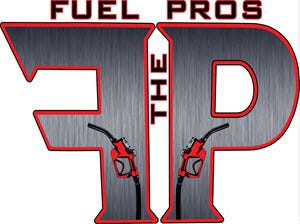
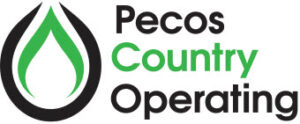
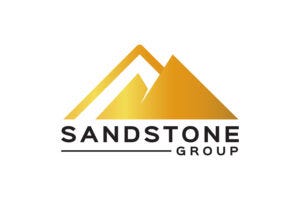
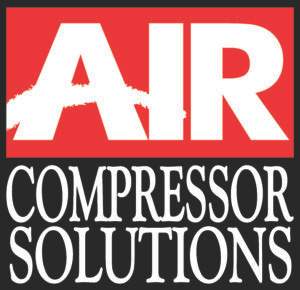
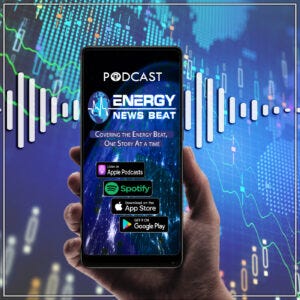
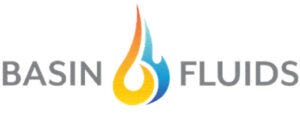
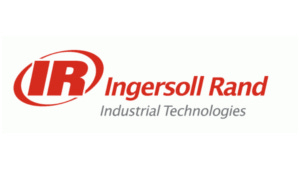
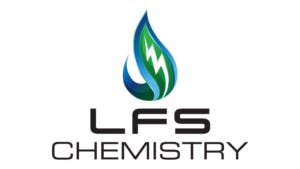
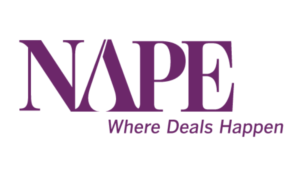

Sponsorships Are Available Or Get Your Own Corporate Brand Produced By Sandstone Media.
David Blackmon LinkedIn
The Crude Truth with Rey Trevino
Rey Trevino LinkedIn
Energy Transition Weekly Conversation
David Blackmon LinkedIn
Irina Slav LinkedIn
Armando Cavanha LinkedIn
